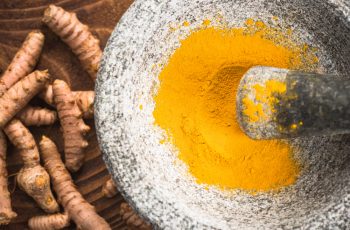Ad Blocker Detected
Our website is made possible by displaying online advertisements to our visitors. Please consider supporting us by disabling your ad blocker.
Bloating is a common symptom that many people experience, but the causes and treatments can vary widely.
What Causes Bloating?
Bloating can be caused by a variety of factors, including:
- Overeating or eating too quickly.
- Consuming foods that are high in fat, salt, or fibre.
- Consuming gas-producing foods like beans, lentils, broccoli, cabbage, onions, and carbonated drinks.
- Irritable Bowel Syndrome (IBS) or other gastrointestinal issues.
- Hormonal changes, such as those experienced during menstruation.
How Can I Prevent Bloating?
To prevent bloating, you can:
- Eat smaller meals throughout the day rather than large meals.
- Chew food thoroughly and eat slowly to reduce swallowed air.
- Avoid or limit intake of gas-producing foods.
- Exercise regularly to improve digestion.
- Stay hydrated.
- Limit intake of salt, which can cause water retention.
Are There Any Quick Remedies for Bloating?
Some quick remedies for bloating include:
- Over-the-counter antacids or gas-relief medications like simethicone.
- Drinking peppermint or ginger tea.
- Engaging in light exercise like walking.
- Lying on your side and bringing your knees toward your chest to release trapped gas.
- Drinking water to help flush out your system.
When Should I See a Doctor for Bloating?
You should consult a healthcare professional if:
- Bloating persists for an extended period or worsens.
- You experience additional symptoms like severe pain, vomiting, diarrhea, or weight loss.
- You suspect you may have a food intolerance or other medical condition.
- Over-the-counter remedies do not bring relief.
Can Bloating Be a Sign of Something More Serious?
While bloating is often harmless and temporary, it can sometimes be a symptom of underlying medical issues, including:
- Food intolerances like lactose or gluten intolerance.
- Gastrointestinal disorders like IBS, Crohn’s disease, or bowel obstruction.
- Hormonal imbalances.
- Ovarian cancer (in rare cases).
Bloating is a familiar sensation to many, but for women, certain life phases and physiological processes can make them more susceptible to experiencing it. Here are some frequently asked questions that specifically address issues of bloating that tend to impact women more significantly:
How does the menstrual cycle affect bloating?
Hormonal fluctuations during a woman’s menstrual cycle, especially in the days leading up to menstruation (often called the luteal phase), can lead to water retention and bloating. Progesterone levels rise post-ovulation, which can slow down the digestive system, leading to a bloated feeling. Moreover, some women may experience PMS (premenstrual syndrome) which often includes bloating among its symptoms.
Can birth control pills cause bloating?
Yes, oral contraceptives or birth control pills can cause bloating in some women. These pills contain synthetic hormones, which can lead to fluid retention and, subsequently, bloating. However, the severity and frequency vary among women. If bloating becomes bothersome, consulting with a healthcare provider about switching to a different pill or birth control method is advisable.
How does pregnancy influence bloating?
Bloating is a common early symptom of pregnancy due to the surge in progesterone which slows down the digestive system. As pregnancy progresses, the growing uterus can also put pressure on the abdominal organs, leading to a bloated feeling. Increased blood volume and fluid retention during pregnancy can also exacerbate bloating.
Are there specific foods women should avoid to minimize bloating?
While food sensitivities can vary among individuals, some common culprits of bloating include cruciferous vegetables, legumes, dairy products, and carbonated drinks. Additionally, high salt intake can cause water retention, especially around menstruation. Reducing or moderating the consumption of these can help in managing bloating.
How does menopause impact bloating?
Just as hormonal fluctuations during the menstrual cycle can cause bloating, the changes in hormone levels during menopause can have similar effects. A drop in estrogen during menopause can lead to water retention and digestive irregularities. Moreover, some women may gain weight during menopause, particularly around the abdomen, which can feel like bloating.
Are there any medical conditions specific to women that can cause bloating?
Conditions like endometriosis or polycystic ovary syndrome (PCOS) can cause bloating. In endometriosis, tissue similar to the uterine lining grows outside the uterus, which can cause abdominal pain and bloating. PCOS, a hormonal disorder, can lead to irregular menstrual cycles and ovarian cysts, which might also contribute to bloating.
Is bloating common during ovulation?
Some women experience what’s known as “mittelschmerz” or ovulation pain. This can be accompanied by mild bloating around the time of ovulation due to the slight swelling of the ovaries and the potential release of some fluid during the ovulation process.
Bloating is a multifaceted issue, with various factors contributing to its onset. For women, hormonal changes and specific life phases can make them more susceptible. Being aware of these triggers and understanding one’s body can help in managing and reducing the discomfort associated with bloating. Always consult with a healthcare provider if bloating is persistent or if there are other concerning symptoms.
What is the best probiotic to take for bloating?
If you’re experiencing bloating, you may be consider the use of probiotics as a potential remedy. Probiotics are live bacteria and yeasts that are beneficial for your digestive system, and some people believe they can help relieve bloating.
Different strains of probiotics serve different health purposes, and their effectiveness can vary from person to person. Some commonly recommended probiotic strains for digestive issues include Lactobacillus acidophilus, Lactobacillus casei, and Bifidobacterium bifidum.
However, it’s essential to consult with a healthcare provider for personalised advice tailored to your specific needs. The “best” probiotic for bloating can depend on various factors including your overall health, other medical conditions you may have, and other medications or supplements you’re taking.
Also, probiotics may not be suitable for everyone, particularly those with certain medical conditions or those who are immunocompromised. Your healthcare provider can provide more detailed information and guide you through the best treatment options for you.
How can someone get relief from a bloated belly?
To get relief from a bloated belly, consider the following steps:
- Avoid gas-producing foods like beans, lentils, broccoli, and carbonated drinks.
- Eat smaller meals and chew slowly.
- Exercise regularly to improve digestion.
- Drink plenty of water, but avoid drinking during meals.
- Take over-the-counter antacids or gas relief medications as needed.
- Consider probiotics to balance gut flora.
- Limit intake of high-salt foods and artificial sweeteners.
- Manage stress, as it can affect digestion.
Consult a healthcare provider for persistent or severe bloating.
Further Reading
- “Bloating: A Review of Pathophysiology, Diagnosis, and Treatment” by Rao et al. (2014) in the journal Current Opinion in Gastroenterology. This review article discusses the causes, symptoms, diagnosis, and treatment of bloating.
- “Bloating: A Clinical Review” by Talley et al. (2014) in the journal *Gastroenterology and Hepatology_._ This review article discusses the clinical presentation, diagnosis, and management of bloating.
- “Bloating: Pathogenesis, Evaluation, and Management” by Camilleri et al. (2015) in the journal *Gastroenterology_._ This review article discusses the pathophysiology, evaluation, and management of bloating.
- “The Role of the Gut Microbiota in Bloating” by Pimentel et al. (2016) in the journal *Gastroenterology_._ This review article discusses the role of the gut microbiota in bloating.
- “Bloating: A Review of the Literature” by Park et al. (2017) in the journal *Journal of Gastroenterology and Hepatology_._ This review article discusses the literature on bloating.
These are just a few of the many studies that have been conducted on bloating. The specific causes and treatments of bloating may vary from person to person, depending on the underlying condition.
It is important to note that bloating is a symptom of an underlying condition, not a condition itself. If you are experiencing bloating, it is important to see a doctor to determine the underlying cause and get appropriate treatment.


